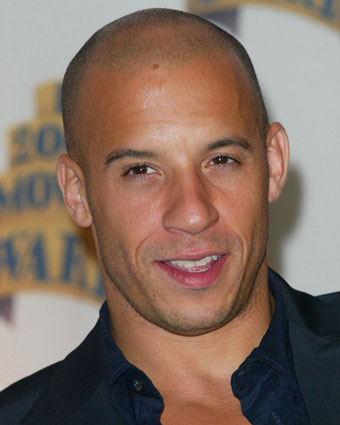Interview with the cast of Guardians of the Galaxy
Thursday, 23 October 2014
Guardians of the Galaxy - Chanise
Guardians of the Galaxy
Guardians of the Galaxy is an American science-fiction superhero film based on the Marvel Comics superhero team of the same name, produced by Marvel Studios and distributed by Walt Disney Studios Motion Pictures.
Trailer:
https://www.youtube.com/watch?v=pTZ2Tp9yXyM


The film is directed by James Gunn, with the screenplay written by Nicole Perlman, Chris McCoy, and Gunn. The film stars Chris Pratt, Zoe Saldana, Dave Batista, Bradley Cooper and Vin Diesel as the eponymous heroes.




The films budget was an outstanding amount of $170 million, more than each of the first "Iron Man," "Thor" and "Captain America: The First Avenger" films.
Marketing
In July 2013, producer Kevin Feige, director James Gunn, and cast members Chris Pratt, Zoe Saldana, Karen Gillan, Michael Rooker, Dave Bautista, Benicio Del Toro, Lee Pace and Djimon Hounsou held a panel at 2013 San Diego Comic-Con International and presented footage from the film.
In June 2012, Marvel filed eleven trademark applications for Guardians of the Galaxy, covering a variety of consumer products, from video games to cosmetics
Disney Consumer Products partnered with Mad Engine, C-Life, New Era, Hasbro, Disguise, Rubies, Sideshow Collectibles, Lego, KIDdesigns, iHome, Funko, Freeze, Fast Forward, and Innovative Designs to produce merchandise for the film, with releases starting in June.
Mad Engine apparel whole sales and C-Life were partnered as the core apparel outfitters, producing a line of t-shirts and fleece jackets, while New Era produced headwear and hats. Hasbro produced toys for the film and Disguise and Rubies produced the costumes.





Release dates and locations



Guardians of the Galaxy is an American science-fiction superhero film based on the Marvel Comics superhero team of the same name, produced by Marvel Studios and distributed by Walt Disney Studios Motion Pictures.
Trailer:
https://www.youtube.com/watch?v=pTZ2Tp9yXyM
The film is directed by James Gunn, with the screenplay written by Nicole Perlman, Chris McCoy, and Gunn. The film stars Chris Pratt, Zoe Saldana, Dave Batista, Bradley Cooper and Vin Diesel as the eponymous heroes.




The films budget was an outstanding amount of $170 million, more than each of the first "Iron Man," "Thor" and "Captain America: The First Avenger" films.
Marketing
In July 2013, producer Kevin Feige, director James Gunn, and cast members Chris Pratt, Zoe Saldana, Karen Gillan, Michael Rooker, Dave Bautista, Benicio Del Toro, Lee Pace and Djimon Hounsou held a panel at 2013 San Diego Comic-Con International and presented footage from the film.
In June 2012, Marvel filed eleven trademark applications for Guardians of the Galaxy, covering a variety of consumer products, from video games to cosmetics
Disney Consumer Products partnered with Mad Engine, C-Life, New Era, Hasbro, Disguise, Rubies, Sideshow Collectibles, Lego, KIDdesigns, iHome, Funko, Freeze, Fast Forward, and Innovative Designs to produce merchandise for the film, with releases starting in June.
Mad Engine apparel whole sales and C-Life were partnered as the core apparel outfitters, producing a line of t-shirts and fleece jackets, while New Era produced headwear and hats. Hasbro produced toys for the film and Disguise and Rubies produced the costumes.
Release dates and locations
Wednesday, 22 October 2014
The Guardians of the Galaxy
The Guardians of the Galaxy
Producer: Kevin Feige
Zoe Saldana,
Dave Bautista,
Vin Diesel,
Bradley
Cooper,
Lee Pace,
Michael Rooker,
Karen Gillan,
Djimon Hounsou,
John C. Reilly,
Glenn Close,
Benicio Del Toro.
Technology used: UI design created by Territory Studio in London.
UI design creates characters of uncertain biological origin in the movie.
Release date: July 21, 2014 (Dolby Theatre), August 1, 2014 (United
States)
Formats: Internet streaming, DVD etc.

Thursday, 16 October 2014
AS Media Studies
Institutions & audiences – The Film
Industry
The film chain process consists of the
production, distribution and marketing.
Production
The production part of the film chain
includes the early stages of producing the film. First, a storyboard has to be
created. When we created a storyboard,
it was helpful because it give us a vague idea of how the film would be set out
and enabled us to plan out the film. Next, by adding dialogue, casting, props and finally editing it, it
creates a film and screens the finished product before the film is
released.
Distribution
How did we move a product film from its manufacturing source to its
customer? Firstly, the editor worked with the raw material (footage) and
selected shots placing them into sequences to create a narrative. By including
a soundtrack, we were able to reinforce the genre as the soundtrack created a
sense of comical and amusement, which reflects back to our swede, which is in
the genre of comedy. After we finished editing, we distributed it to the
internet and gained feedback such as “funny” and “hilarious”.
Marketing
We used a wide ranged of online resources to
appeal to our target audience and promote our swede. By using
synergy (facebook and twitter) my swede was endorsed and viewed by a
wider and larger ranged audience.
Digital technologies such as canons, macs and
advanced software editors were used to produce the swede. Once it was disturbed
to the internet, we used synergy to promote our swede. Unfortunately, we had no
budget, so promoting billboards and bus campaigns were unavailable for us, and so were cross-media convergence as we didnt have the resources to make our swede exclusively for Phones. We were able to gain a pre-established audience from the original white chicks swede, enabling us to consume more viewers.
Thursday, 9 October 2014
Wednesday, 1 October 2014
Introduction
Hey guys!
We are group 23, from the left of the picture; Kim, Shazna, Lady Pearl & Chanise.
Our Swede is Based on White Chicks the movie.
Five Facts about the Film Industry:
- In 2012 the UK box office took over £1 billion for the 3rd year running
- Did you know, the most freuent cinemagoers tend to be students, teenagers and young adults
- 646 fils were released in the UK in 2012, that's over 12 new titles per week
- Saturday is the most popular night, 24.1% of box office
- In 2012, the most popular genre was action with 34.5%
Film Chain
Film chain
Production:
The early stages of producing a film are that the director
needs to create a storyboard so that they know what their film is going to be
about. Adding dialogue, casting, props and finally editing it so that it creates
a film and screening the finished product before the film is released. Examples
of main producers of films in America are 20th Century Fox owned by
20th Century Fox, United Artist Entertainment run by Cruise/Wagner
productions and many more. The ownership of the studio might have a impact on
what films the studio makes because for example if there was a big studio like
the 20th Century Fox them they would want to make a big budget
Hollywood film as they are a big studio and there audience expects to see big
films from them not a small independent film that no one is interested in from
a big studio. A independent production means an independent film is a
professional film production resulting in a feature film that is produced
mostly or completely outside of the major film studio.
Distribution:
Distribution means the process of moving a product film from
its manufacturing source to its customers. The editor works with raw footage
selecting shots and combining them into sequences to create a finished motion
picture. Once all the editing id done it can be released to cinemas. It is hard
to distribute films because of the cost in money and time involved in
distributing a movie. Distributors must feel confident that they can make a
sufficient return on their investment. Producers do not distribute the films as
in the film industry there are certain types of jobs that are given to people.
The traditional way of distributing a film is to create manifestos. By creating
these everyone can find out what film is about to show on. A newer way of
distributing a film would be that distributors use the internet such as social
websites to make everyone see what the film is about. This is because now
people use the internet often and they might now be into a manifesto. Film
festivals are
typically annual events. The most well-known film festivals are the Venice Film Festival, the Cannes Film Festival, the Toronto Film Festival, Sundance Film Festival, and the Berlin International Film Festival, the latter being the largest film festival worldwide, based on
attendance. This is a good way to distribute films as everyone can get involved
in the festival and t is a fun event to see what interesting films there are to
see. It is essentials to have distribution part of the film chain so that it
will help the film to become a better release. If there was no distribution
then the film will have no publicity as no much people will know about it.
Marketing:
Marketing is
the business of promoting and selling products. This includes advertising a new
film. The difference between marketing and distribution marketing advertises
and films were as distribution is the process of sharing a film to the
audience.
Examples of
marketing:
Poster
Films in different countries are promoted in different ways.
For example here and there posters of the blockbuster American film avatar. They
are different because they are presented in a way were it would attract people
in their country to watch the film. Some people might be attracted to the
colour scheme of the poster, they might be attracted the stars of the film or
they may be attracted because the like a certain genre of a film like science
fiction films.
Exhibition:
Audiences can see films by going to the cinema,
internet streaming, DVD, mobile phones, pay-to-view television etc. Boxoffice
means where information on audience viewing figures and profits made on a film
are gathered. A box office is useful to identify which film is successful
because it helps the company to see if the film was popular or not by seeing
which film sells out the most. The money is discussed between the companies to
see who gets the money if their film gets big. Cinemas make their money by
selling refreshments and tickets to customers. Cinemas usually do deals so they
can make people go to the cinema rather than watching it at home. Ancillary
markets are
non-theatrical markets for
feature films, like home video, television, Pay Per View, VOD, Internet streaming,
and others.
Subscribe to:
Comments (Atom)

.jpg)










.jpg)













